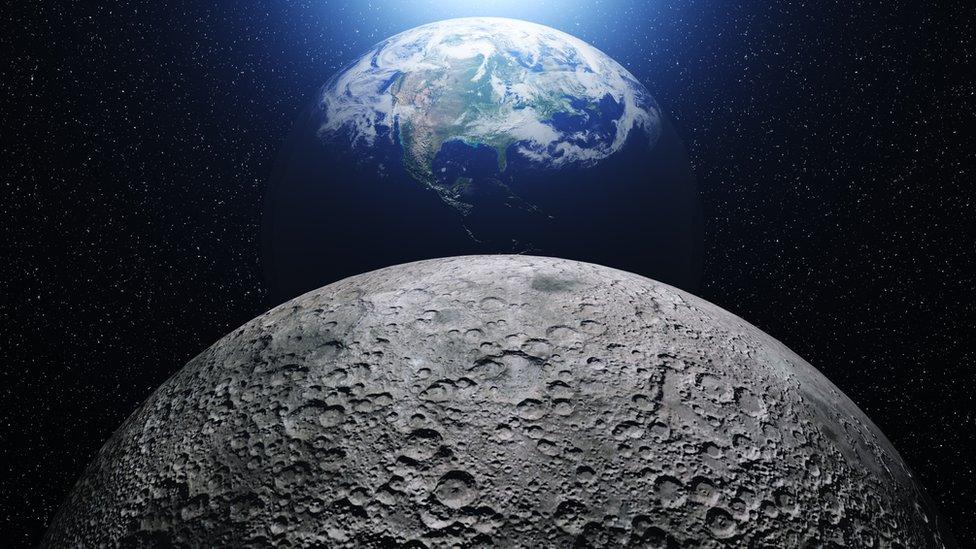Artemis: Nasa identifies future Moon landing sites
- Published
- comments

It's been 50 years since humans were last on the moon
Nasa's Artemis missions are part of the US space agency's big plan to send humans back to the moon for the first time in 50 years.
Even though Artemis 1 is yet to take off Nasa is already planning where it wants to land astronauts for Artemis 3!
Artemis 3 will be the first time Nasa has sent humans to the Moon since the Apollo mission in 1972.
Now, Nasa scientists have revealed 13 possible areas on the Moon where it wants to land astronauts.
A map of the moon showing the 13 candidate landing regions for Artemis 3
The 13 landing zones are all centred around the Moon's south pole - a part of the Moon that hasn't been explored much before.
Nasa says there are multiple possible landing sites within each of the 13 zones. However, they need to do more research before deciding on an exact spot.
The south pole is very mountainous and full of craters. This means astronauts should have a lot of areas they can explore and carry out research.
All 13 potential landing zones were also chosen because of how often they receive sunlight.
Each zone contains sites that provide continuous access to sunlight throughout a 6.5-day period - which is how long Nasa has planned for the Artemis 3 surface mission.
WATCH: Moon landing - What are conditions like on the Moon?
Access to sunlight is important for a long-term stay on the Moon, as it can provide a power source and also helps to minimize extreme temperature changes between day and night on the Moon.
"Selecting these regions means we are one giant leap closer to returning humans to the Moon for the first time since Apollo," said Mark Kirasich, deputy associate administrator for the Artemis missions.
"When we do, it will be unlike any mission that's come before as astronauts venture into dark areas previously unexplored by humans and lay the groundwork for future long-term stays."
- Published4 September 2022
- Published14 September 2021
- Published20 July 2019
